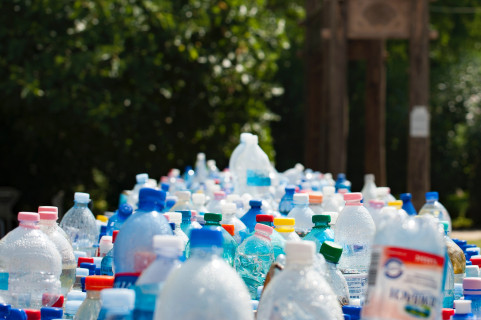Every year, more than 300 million tons of plastic are produced worldwide, half of which are for single use. Only 10% of all plastics are made from recycled material. Their production contributes to greenhouse gas emissions and plastic waste threats our health.
It could have been otherwise, and it still can as plastics are versatile materials which can be valuable parts of a circular economy.
Unilever leads the way in integrating plastics in a circular economy. Better late than never. The company currently produces 700,000 tons of plastic packaging and it intends reducing this massive quantity by a not-very impressive 100,000 tons in 2025. Moreover, the company wants that all its plastic packaging becomes recyclable, compostable of reusable, and that at least 25% recycled plastic is used in the production of new plastic.
Easier said than done
Recycling is easier said than done. Preventing plastics from entering nature requires a labor-intensive and costly system for collecting and separating waste and technology for high-quality recycling of the collected plastic waste. New machines limit this unattractive work thanks to artificial intelligence. They are able to separate 20 different types of plastics. But consumers must be willing to collect used plastics first.
One of the biggest hurdles in recycling plastics is its pollution, for instance because of added dyes. The Dutch company Ioniqa (now part of Unilever) can chemically reduce PET waste to virgin PET. Large plastic users like Coca-Cola intent to co-operate with Ioniqa. This video shows how chemical recycling works.
Reusable high-quality products
If plastic had been designed for a circular economy from the start, the emphasis would undoubtedly have been on reusable high-quality products, in combination with substantial deposits. Together with Coca-Cola, Proctor & Gamble, Nestlé, Unilever has joined Loop, a platform that develops refillable packaging. Supermarkets that deliver products at home can easily include them in their range. This video shows how the system works.
The ultimate solution
What about using sustainable raw materials like biomass? Unfortunately, biomass from reliable sources is becoming increasingly scarce. Moreover, most bio-based plastics are not biodegradable. If they end up in litter, the effects are as harmful as those of other plastics. Some types of biobased plastics are compostable and might be thrown in the green waste. However, expecting consumers to be able to discern which are and which are not is too much to ask.
Biologically degradable plastics are the ultimate solution. These are biobased materials, which are safely broken down in nature in short time. PHA for example. Unfortunately, years of research have not yet resulted in any viable application.
Ban some types of plastic
A recently opened pilot factory in Almere that cycles plastic waste that otherwise would be burned is a promising step. However, the collection of plastic waste is still inadequate, and a large proportion ends up in nature as visual litter and returns to our food chain as toxic plastic soup. This applies in particular to plastic bags, cups, trays for snacks and soft drinks bottles without a deposit. A ban seems to be the only way-out awaiting a solid system of reuse based on substantial deposits and an advanced system of waste collection and separation and subsequent high-level reuse.
I will regularly share with you ‘snapshots’ of the challenges of us, earthlings, to bring social and ecological cities closer using technology if helpful. These posts represent findings, updates, and supplements of my e-book Humane cities. Always humane. Smart if helpful. The English version of this book can be downloaded for free below.




Hi, thanks for sharing! Always nice to see some motivational words. Cheers, Robin
Wow, great share, we should all care about our planet!